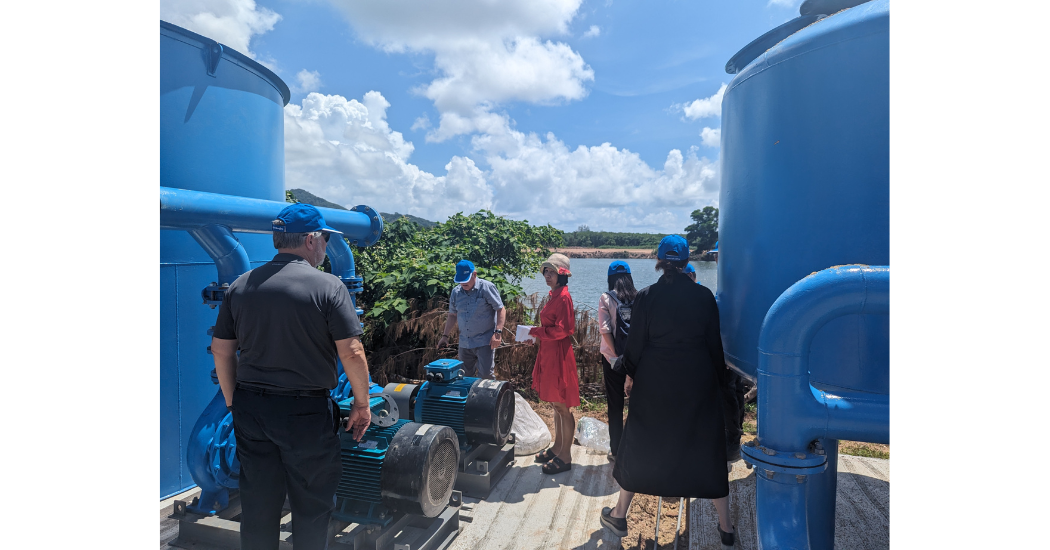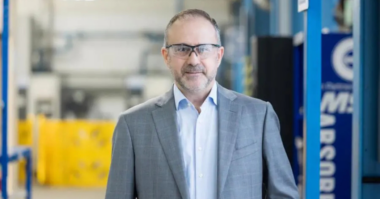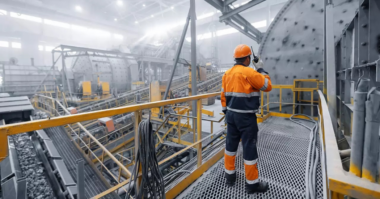You wouldn’t guess the lush green valley dotted with small ponds is supposed to hold part of Phuket’s water supply.
“It’s supposed to be a reservoir and it’s turned into a golf course,” says Sukrid Klinson, manager of the Provincial Waterworks Authority (PWA) Phuket Branch. (All quotes for this article were translated by an interpreter.)
Dean Amhaus, The Water Council president and CEO, and Stacy Vogel Davis were in Phuket, Thailand, as part of the U.S. Water Partnership’s Water Smart Engagements (WiSE) program, funded by the U.S. State Department. The delegation – including Laila Sukkariyyah, director of global programs at the Water Environment Federation, and Christopher Rich, executive director of the U.S. Water Partnership – visited several reservoirs, a water testing facility and the PWA Phuket headquarters over a few days.
The first reservoir they visited was about 10% full. Normally at this time of year it’s at 25%, but the rains that were supposed to arrive in April or early May haven’t shown up. That’s partly to be expected in an El Nino year, but the effect is exacerbated by climate change.
“We are using our future water right now,” Klinson says.
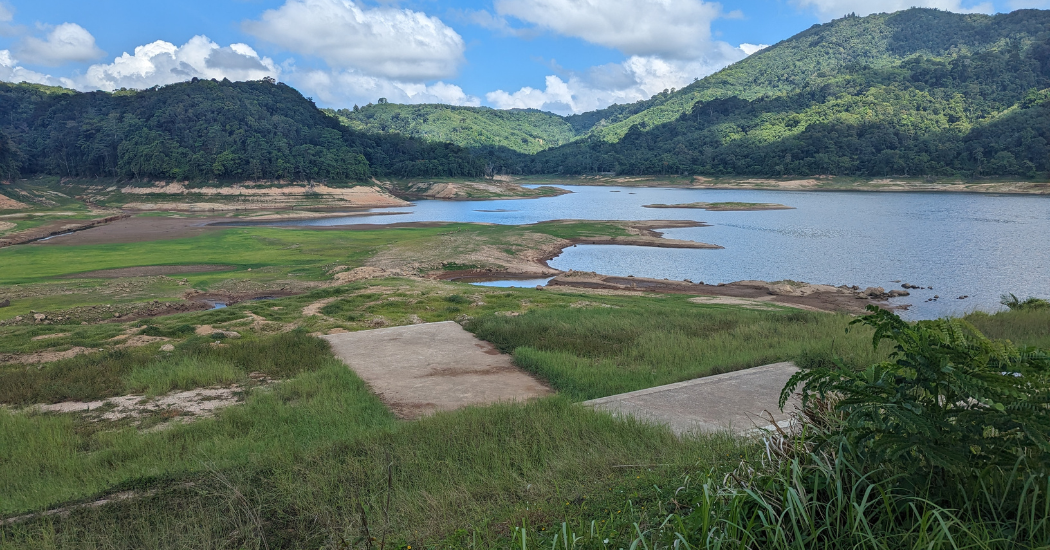
This reservoir is normally 25% full at this point in the year.
WiSE is a two-way exchange that matches five Asian cities with U.S. cities to:
- increase water security through sustainable water management solutions
- establish long-term relationships to foster communication and build capacity, and
- increase the exchange of services, goods, science and technology.
This is the American delegation’s third visit to Phuket, and they were welcomed a Phuket delegation to Milwaukee twice.
Over the four years of the program, the organizations have discussed water challenges such as nonrevenue water, training, water supply and testing. For example, most water meters in Phuket are still read manually, resulting in lost revenue. The district hopes to convert to electric “smart” meters, but cost is a major impediment.
The Water Council has put PWA Phuket in touch with Milwaukee-based Badger Meter about a potential pilot project with smart meters. Ken Bockhorst, Badger Meter president and CEO, is vice chair of The Water Council’s board.
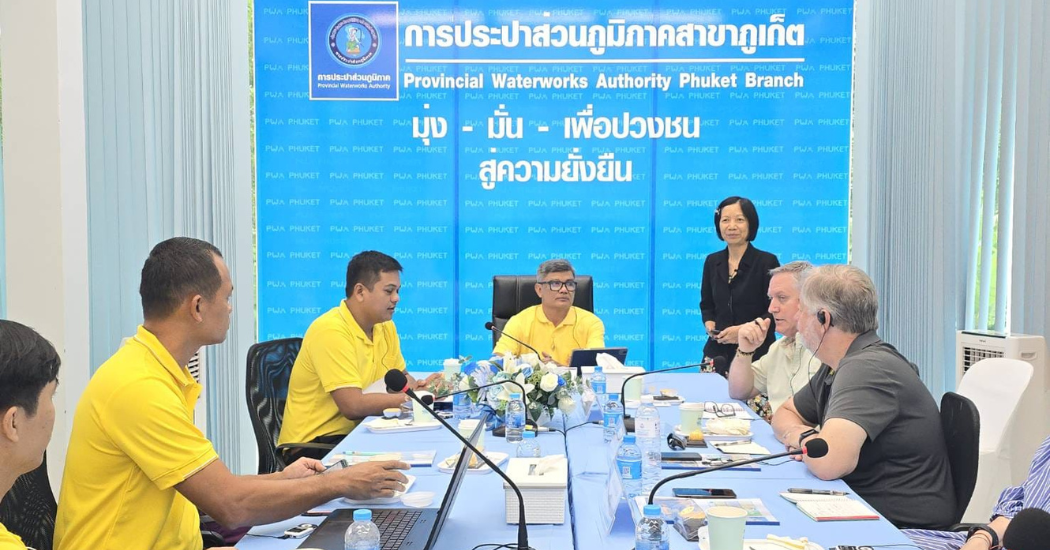
The Phuket and U.S. delegations discuss the future of the partnership.
PWA Phuket officials say they have learned much from the partnership, and it has already yielded tangible results. For instance, the team installed low-pressure valves after learning about them in Milwaukee as a way of controlling water flow and reducing costs when demand is low, Mr. Klinson says. He’s glad some of his staff got to visit America and learn about new technologies in use there.
Weerayoth Prasertsri, an electrical engineer at PWA Phuket, has also been interested to learn about new technologies. He already uses software from Rockwell Automation – another Milwaukee-based company – for automation programming and hopes to use more as the organization upgrades its supervisory control and data acquisition (SCADA) system. He’s also excited about the potential Badger Meter pilot.
“It would be great if we have another brand (of electric water meter) that Milwaukee could recommend, if it’s easy to use and inexpensive,” he says.
The American delegates are learning from Phuket as well. Poonnang Thongyoo, a PWA Phuket accountant who also does public relations for the branch, showed the group an attractive, easy-to-use app that the agency created for customers to pay their water bills and learn more about water conservation. Customers can also receive alerts and send comments or complaints through the app.
Ms. Thongyoo has helped coordinate the program visits through the U.S. embassy in Thailand.
“I was surprised from the very beginning, and I was excited that The Water Council was coming,” she says. “It’s a big, big event.”
She says the body of knowledge the Phuket officials have gained from the program is beneficial, even if it will take time to implement new technologies because of budget constraints.
But time is of the essence as Phuket faces its biggest water challenge yet in the form of water scarcity. The island’s economy depends on tourism – the population of about 400,000 welcomed more than 11 million visitors last year – and hotels are notoriously high water consumers. Meanwhile, the weather has become more unstable in recent years and the rain less certain.
“Due to less rain, we have a critical water supply issue,” says Suttipong Suwandachakul, assistant manager.
One way the branch is managing the shortage is by buying water from former tin mines. The mines now serve as unintentional water reservoirs, and the agency buys the stored water from the property owners. However, it is competing with private water suppliers that are also buying up water from the former mines.
PWA Phuket is installing a mobile unit to treat and pump water from a defunct tin mine as an emergency measure during the water shortage.
The branch is planning a new pipeline to bring resources from a more water-rich area to the island. The project could double the available water supply but will take five to seven years to fully complete.
Meanwhile, some short-time relief has arrived. After forecasted rain doesn’t materialize for several days, the skies open on our last day in Thailand. As the rain pours onto the roof of the PWA Phuket facility, everyone smiles, and some clap their hands. The rain continues throughout the day, and we all hope it’s a sign of things to come.
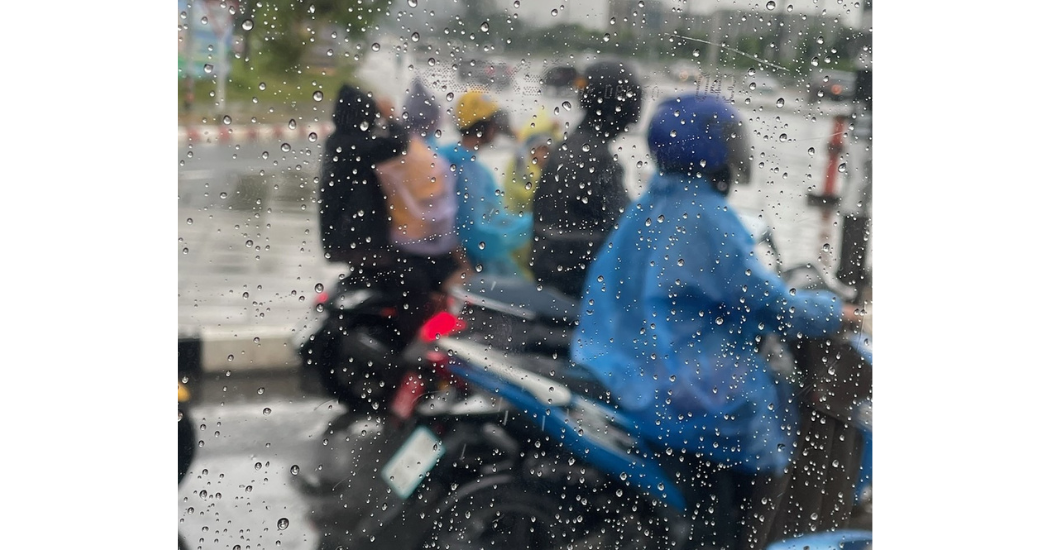
The rain finally started to fall in Phuket on Monday.
What’s Next: They will travel to Singapore International Water Week (SIWW) with two delegates from PWA Phuket. This is the last visit for the official WiSE program, but delegates from both countries say they plan to continue the relationship for the long term. Stay tuned to the blog for an update from SIWW.
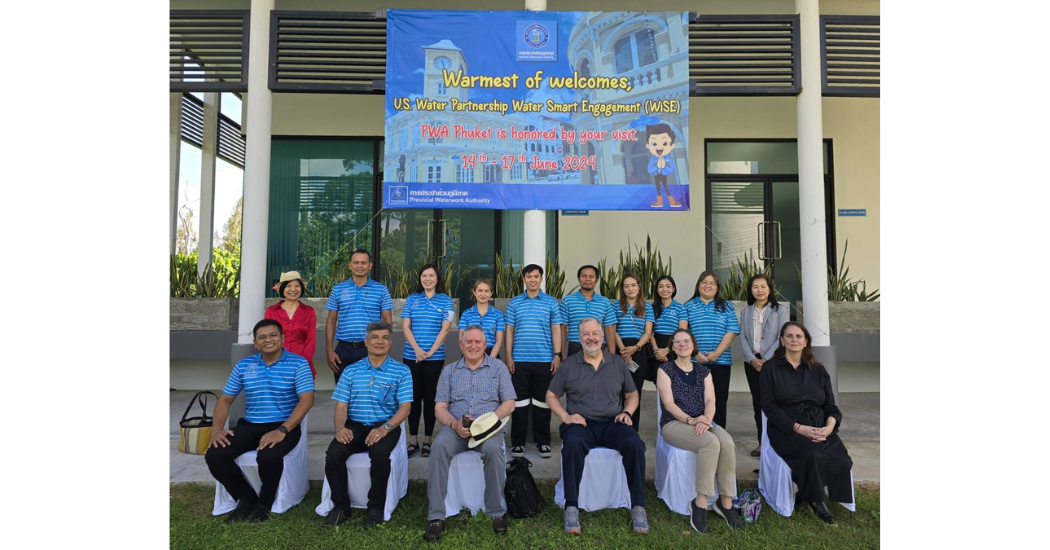
Author:
Stacy Vogel Davis, Communications Director
Originally Published on https://thewatercouncil.com/

